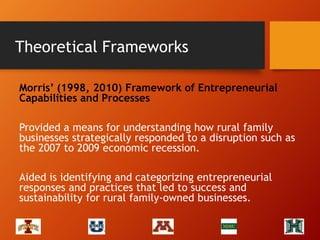In the intricate tapestry of family dynamics, the intersection of personal relationships and business ventures often weaves a complex narrative. The concept of family businesses is not a new phenomenon; for centuries, families have pooled resources and talents to create enterprises that not only sustain livelihoods but also serve as legacies for future generations. However, as the lines between familial obligation and professional duty blur, a compelling question emerges: Is it fair to require family members to contribute to a family business? This question invites a deeper exploration of the expectations placed on individuals within the family unit, the ethical implications of such demands, and the potential impact on both personal relationships and business outcomes. By dissecting the multifaceted nature of this issue, we aim to provide a balanced analysis that considers the perspectives of all stakeholders involved, ultimately seeking to uncover whether familial duty should be a driving force in the realm of business.
Evaluating the Ethical Implications of Family Contributions
When considering the ethical dimensions of involving family members in a family business, it’s essential to balance obligation and autonomy. On one hand, contributing to a family business can foster a sense of shared responsibility and collective achievement. It often strengthens family bonds and provides an opportunity for members to develop valuable skills and experience. However, the expectation of participation can sometimes blur the lines between personal choice and familial duty, potentially leading to resentment or strained relationships.
Several ethical considerations come into play when requiring family contributions:
- Autonomy: Do family members have the freedom to choose their level of involvement, or is there an implicit pressure to contribute?
- Fairness: Are the contributions and rewards distributed equitably among all involved, or do certain members bear a disproportionate burden?
- Transparency: Is there clear communication regarding expectations, roles, and the potential impact on personal and professional lives?
Balancing these factors requires a nuanced approach that respects individual agency while recognizing the collective goals of the family business. Ultimately, ethical engagement hinges on open dialogue and mutual respect, ensuring that contributions are seen as a shared opportunity rather than an enforced obligation.

Assessing the Impact of Mandatory Participation on Family Dynamics
In evaluating the effects of obligatory involvement in family enterprises, several key dynamics come into play. Family relationships, often characterized by deep emotional bonds, can be strained when professional obligations are imposed without consent. The necessity to balance personal aspirations with familial expectations can lead to tension and resentment, potentially disrupting the harmony of family life. Furthermore, the dynamics of authority and decision-making become complex, as traditional family hierarchies might clash with business needs. This raises the question of whether the emotional cost outweighs the benefits, both personally and professionally.
- Autonomy vs. Obligation: Individuals may feel a lack of autonomy, being forced into roles that don’t align with their personal goals.
- Impact on Communication: Open communication might suffer, as underlying tensions are often left unaddressed.
- Generational Differences: Younger family members may have different values and work ethics compared to older generations, leading to potential conflicts.
These elements highlight the need for a balanced approach where the advantages of mandatory participation are carefully weighed against the potential disruptions to family dynamics. Establishing clear, mutually agreed-upon boundaries and roles can help in mitigating these challenges, ensuring that the family unit remains strong while the business thrives.
Balancing Fairness and Business Needs in Family Enterprises
In the intricate dynamics of family enterprises, the expectation for family members to contribute can be a double-edged sword. On one hand, there’s the notion of shared legacy and mutual investment in the business’s success. However, it’s crucial to balance fairness with business needs to ensure that both the enterprise and the family unit thrive. The principle of meritocracy should guide decisions, ensuring that roles within the business are based on skills and competencies rather than mere familial ties.
- Transparent Communication: Establish clear expectations and open dialogue about roles and responsibilities.
- Equitable Opportunities: Provide equal chances for professional development and advancement to all family members.
- Objective Assessment: Implement regular performance reviews to maintain accountability and fairness.
Ultimately, the goal is to foster an environment where family members feel valued not just for their lineage but for their contributions and capabilities. This ensures that the business benefits from a motivated workforce, while family relationships remain harmonious and supportive.

Strategies for Equitable Involvement of Family Members
Ensuring the equitable involvement of family members in a family business requires a thoughtful approach that respects individual abilities and aspirations while maintaining the business’s objectives. Transparency is key; clearly communicate roles, responsibilities, and expectations to prevent misunderstandings and foster a sense of ownership among family members. This can be achieved through regular family meetings where open dialogue is encouraged, allowing each member to voice their concerns and suggestions.
- Assess Skills and Interests: Match tasks to each family member’s skills and interests to ensure they feel engaged and motivated.
- Provide Training and Development: Offer opportunities for skill enhancement to help family members grow within the business.
- Flexible Roles: Allow flexibility in roles to accommodate personal commitments and varying levels of involvement.
- Fair Compensation: Establish a compensation structure that is fair and reflects the contributions made by each family member.
Moreover, incorporating structured performance evaluations can help maintain a balance between familial ties and professional standards. This ensures that each member’s contribution is valued based on merit rather than solely on familial relationships. Such strategies not only promote fairness but also strengthen the family business by harnessing the full potential of its members.



